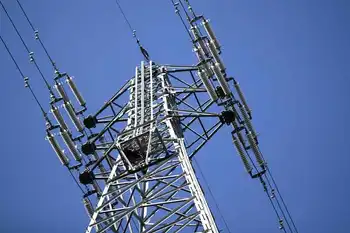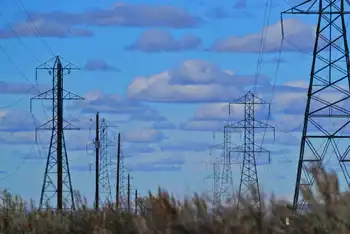More hydropower plants sought
By Knight Ridder Tribune
CSA Z462 Arc Flash Training - Electrical Safety Essentials
Our customized live online or in‑person group training can be delivered to your staff at your location.

- Live Online
- 6 hours Instructor-led
- Group Training Available
"Based on our research, Thailand still has potential to build 4,000 megawatts of hydro-electricity at many sites across country," he said. Mr Suttipong said hydro-electricity was one of the best choices for sustainable energy and was very cost-competitive. It can also help alleviate climate change problems, something plants using fossil fuels cannot do.
However, even hydro-electric dams are likely to encounter opposition from environmental activists, who have succeeded in blocking some coal-powered plants and are gearing up to oppose the government's nuclear-power plans as well.
The newest hydro-electric plant in Thailand is the Pak Moon Dam in Ubon Ratchathani, which opened in 1993 and has been the target of local fishermen and other activists ever since.
Mr Suttipong said Egat had identified appropriate sites for hydro-power, including 240 megawatts on the Pai River in Mae Hong Son, 56 MW at Sai Buri in Narathiwat, 80 MW on the Kaeng Krung River in Surat Thani, and huge potential on the Yom River in nor hern Thailand.
Egat is now installing electricity generators at its six mini-dams nationwide, which were built to ease the threat posed to farmers by floods. They also generate a combined of 78 MW of power.
Mr Suttipong said that clearing a forested area for a hydro-power plant represented less damage to the environment than what was caused by emissions from a similar-sized plant using fossil fuels.
Egat points to the success of its 30- year-old Bhumibol dam plant, where electricity production costs are only 0.60 baht a kilowatt-hour (unit) compared to 1.80 baht for a coal-fired plant and 2.20 baht one fuelled by natural gas. But it is not clear whether the new government will continue to pursue the policies of its predecessor, or what kinds of fuels policymakers will favour.
Egat also will seek to amend parts of the national power development plan (PDP) to reflect an increase beyond its original projections for power supplies from neighbouring countries, based on new power purchase agreements.
According to the revised PDP, imports from neighbouring countries would total 14,600 MW, which accounts for 25.4 percent of total power capacity. The figure includes 7,000 MW from Laos, compared with 2,000 MW planned originally. Egat is also counting on having 4,000 MW available from the huge Salween dam in Burma, starting between 2017 and 2020.
As well, the coal-fired Koh Kong plant in Cambodia is scheduled to deliver 3,600 MW between 2019 and 2021. The revised plan will still call for 4,000 MW supplied by a nuclear plant starting in 2020-21, and 1,400 MW from independent power producers in a new round of bids for power supplies to start in 2017-19.











